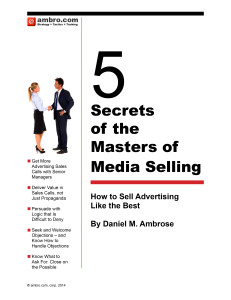Did it really take research at Stanford to prove Calvin Coolidge right?
“Nothing in the world can take the place of Persistence. Talent will not; nothing is more common than unsuccessful men with talent. Genius will not; unrewarded genius is almost a proverb. Education will not; the world is full of educated derelicts. Persistence and determination alone are omnipotent. The slogan ‘Press On’ has solved and always will solve the problems of the human race.” Calvin Coolidge
Procrastination is the enemy of success. We have all done it. I, at least, am embarrassed when I do it egregiously. And I feel great when I overcome it and get hard stuff done.
One of the hardest things in sales is overcoming call-resistance. Advertising sales people often spend too much time in preparation in order to avoid making calls.
We know that if we have more sales calls, we will make more sales. As Woody Allen said, “80% of life is just showing up.” So how can we “show up” more? Of course the answer is to reach out to more existing and prospective clients and do it more often.
I have written elsewhere about the importance of leaving intelligent messages when phoning and following-up with a similarly intelligent email. This is a critical part of Strategic Sales Tactics training. It is easy to consider your unanswered calls and emails to be a waste. But if your messages are carefully crafted, intelligent communications act as advertising for you and your media by building awareness and even trust through repetition.
So, I was interested when I saw a report on new research in the magazine of Stanford Graduate School of Business. The research tested the results of asking strangers for favors. That is essentially what we do as sales people when we ask for an appointment to try to win new business. The prospect doesn’t know us, or (yet) why our medium might serve their needs. We are asking them for a favor to lend us their time.
Recent research by Daniel Newark shows that we overestimate the chance that our requests for help will be denied — especially after we’ve been turned down before
“What we found,” Newark says, “was that the percentage of people saying yes to the second request was higher than the percentage saying yes to the first request.” In other words, saying no the first time actually made people more likely to say yes the second time, even though the two favors were equally small.”
Train your sales people, or hire ambro.com to train your ad-sales people, to schedule their day to get appointments. That is where sales prosperity starts.

